Last-Minute NYC Holiday Gift Guide 🎁
We’ve created a holiday gift guide with presents for the intrepid New Yorker that should arrive just in time—


The recent demolition of Sunshine Cinema on the Lower East Side has a particular sadness to it. It’s no secret that small movie theaters are struggling, especially without a creative new offering like Nitehawk Cinema or Alamo Drafthouse. Still, the closure or potential closure of many theaters recently has hit a nerve for New Yorkers, who are seeing the loss of many locations that have been formative in not only their exposure to art house and independent film, but also pivotal for the film industry. Some of these places inspired and were frequented by notable New York City directors, like Martin Scorsese and Susan Sontag. Some of these theaters frequently launched movies that went on to become Academy Award winners, offering a chance for foreign or little known films to make it to the New York City stage.
Read on to see some of the theaters that have recently closed or at risk of closing:
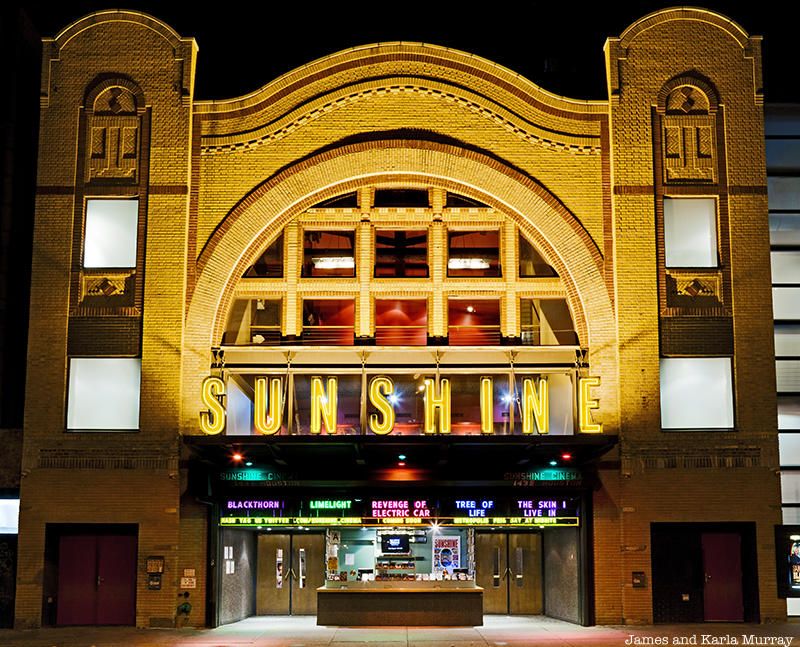 From the book New York Nights
From the book New York Nights
A month ago, Bowery Boogie reported on the on-going demolition of the former Sunshine Cinema, at 141 Houston Street between Forsyth and Eldridge streets, next to Lower East Side institution, Yonah Schimmel’s Knish. Yesterday, Curbed NY reported that the building was completely gone.
The loss is particularly poignant for New Yorkers because the Sunshine Cinema was a great story about adaptive reuse, surviving for 175 years “first as a church, then as an athletic club, and later as a nickelodeon that drew hundreds of attendees a day to its Yiddish vaudeville performances,” reports The New York Times. Its architecture reflected that mish-mosh history, with two symmetrical church towers, a central arched span punctuated by windows, and theater marquee with neon sign. The building began as a Dutch Reformed Church in 1844. Its last chapter as a movie theater began only in 2001, operated by Landmark Theaters and showing independent and art-house films. It closed in 2018.
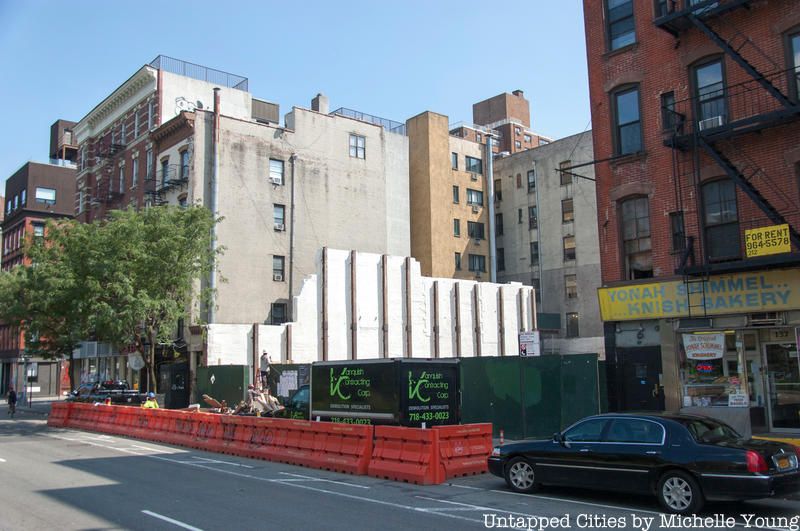
Site of the former Sunshine Theater
It’s possible the neon sign may reappear in the new development that’s about to be constructed — a 9-story glass-facade office building — but it’s not much consolation to long time Lower East Siders and film buffs.
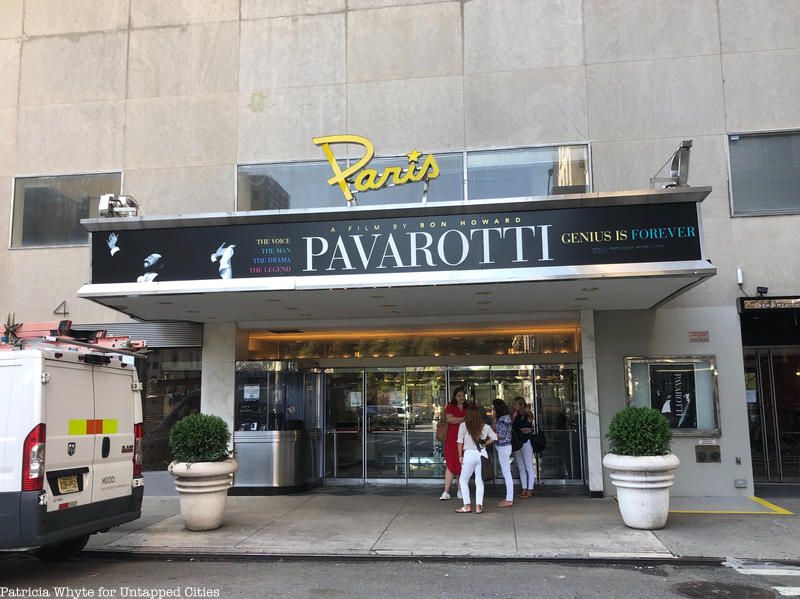
Another theater close to New Yorkers’ hearts is The Paris Theatre, the last of the single-screen cinemas left in Manhattan. Located just next to The Plaza Hotel and Bergdorf Goodman, off 5th Avenue, it’s also the last single-screen theater that shows first-run films in the country, according to Indie Wire. It’s not yet closed but rumors started to swirl in June that it might not make it through July or August. So far, it has made it into the month of August and is still playing Pavarotti (although the last available date for showtimes on the theater’s website is August 15th). [Update: the Paris Theatre closed but as been reopened by Netflix!]
The Paris Theatre opened in 1948 by French film company, Pathé Cinema. Marlene Dietrich cut the inaugural ribbon on its opening night. The theater contains 581 seats and often shows art films as well as international films in their original language. It was one of the first theaters to show the 2011 French romantic comedy The Artist, which went on to win Best Picture at the 84th Academy Awards. Other films that have shown there include Call Me By Your Name, A Room With a View, and The Remains of the Day. This author has fond memories of seeing films there with her mother, including Jane Eyre with Charlotte Gainsbourg, when she was a young teenager.
However, the industry has changed and a single-screen cinema playing art house films is no longer a sustainable business. Indie Wire reports there are just fewer movies that fit the bill and that the subtitle film market has essentially had a “near-total collapse.” The streaming business has also given the niche segment a hard hit.
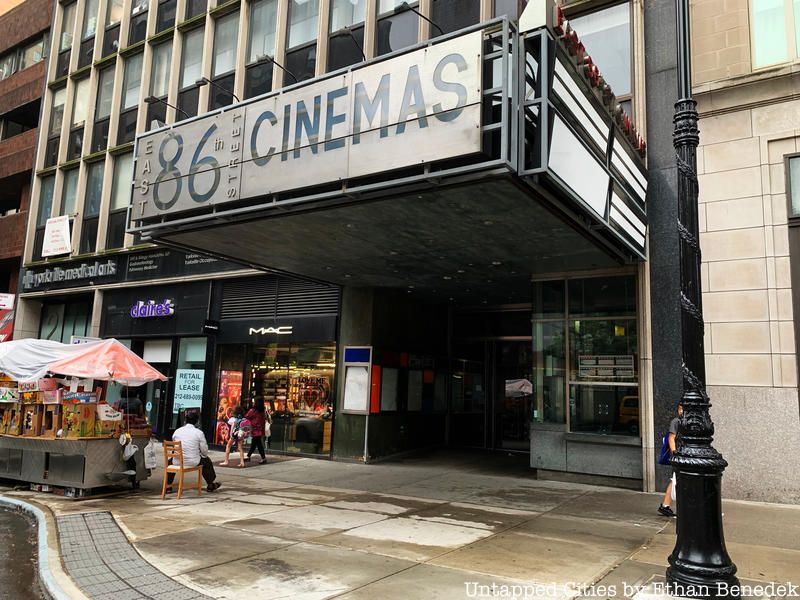
In May, the East 86th Street Cinemas, operated by City Cinemas between 2nd and 3rd avenues closed suddenly, with Patch reporting that signs reading “theater closed” and “the end” appeared. The marquee also went empty and its cash register was gone. On Reddit, a local reported that the closing had come as a surprise to Community Board 8 and the employees of the theater. But unlike the closing of other theaters included here, the closing of this City Cinemas theater went relatively unnoticed outside of the local community.
It’s hard to see from the modernized outside, but the East 86th Street Cinema has been around as a theater since 1904 when it opened as the Yorkville Casino Theatre, according to Cinema Treasures. In the 1930s it catered to predominantly German-speaking audiences in the neighborhood. It was a single-screen theater until 1999, when it became a quad. Three months after closing, not much has changed here. The marquee is still there, with the theater name intact.
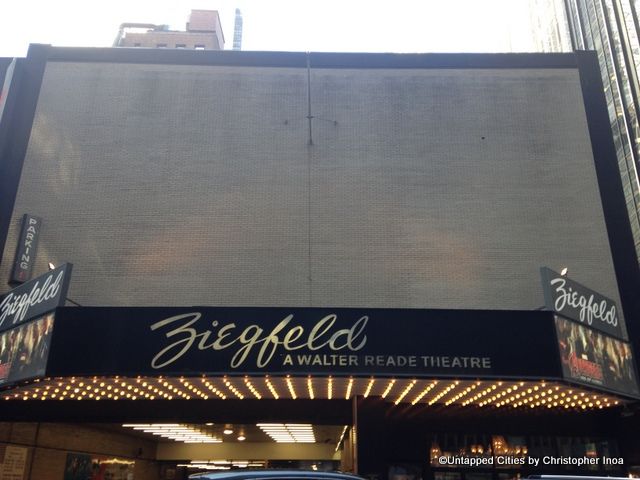
The Ziegfeld Theater, shown above before it closed as a movie theater, is itself a second version of the original Ziegfeld, located just next door. There is nothing very architecturally distinctive about the second Ziegfeld, especially in comparison to the wildly imaginative original designed by Joseph Urban and Thomas Lamb. But it is likely the name Ziegfeld, which conjures up the heady excess of Gilded Age entertainment venues, that partially caused the uproar when it was announced that the movie theater would be closing in 2016. It and the Paris Theatre were the only two single-screen cinemas left in Manhattan at the time., though the Ziegfeld had nearly twice the number of seats.
The Ziegfeld is now a ballroom operated by Gotham Events. The renovation has an Art Deco influence and is said to draw inspiration from the S.S. Normandie’s interiors.
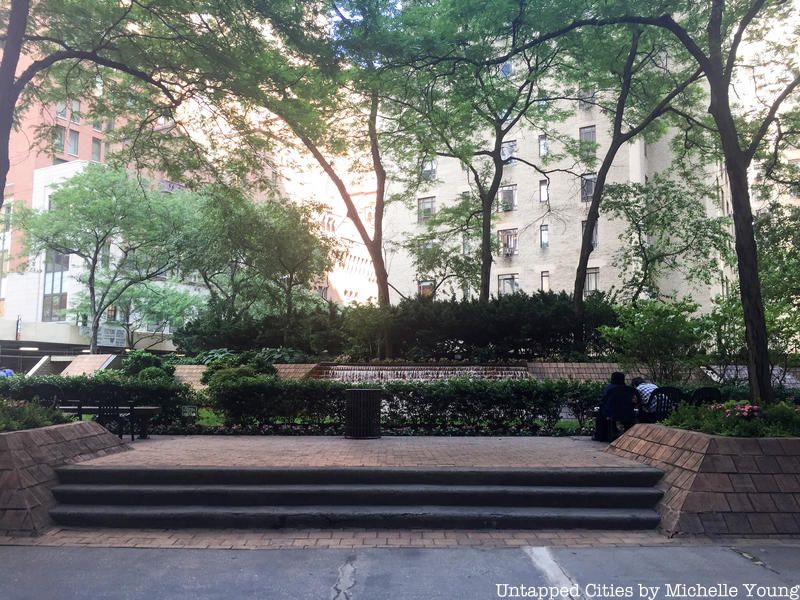
The privately owned public space behind the arcade that contained the entrance to Lincoln Plaza Theater
The Lincoln Plaza Theater, formerly located on Broadway between 62nd and 63rd streets was a neighborhood staple since 1981. With six screens, it was also known for playing art house films and had a particular caché as one of four theaters that were run by husband and wife team, Daniel and Toby Talbot who were well-known in the film industry. The New York Times notes that Martin Scorsese penned the forward to Toby Talbot’s memoir The New Yorker Theater and Other Scenes from a Life at the Movies. The movie theater itself and its offerings are said to have influenced Susan Sontag and Woody Allen, and was a kind of gatekeeper and launching pad for new films. Like The Paris theater, Lincoln Plaza often showed foreign and independent films first, often with an exclusive run.
The theater closed in early 2018, after the building’s owner did not renew the lease. Since then, it has sat empty. But you can still walk under the marquee and see the escalators that once took movie goers to the underground theaters, after they bought their tickets on the booths facing the street. The theaters were small but there would always be a buzz of excitement on the lines for each movie, as the theater would have everyone queue up until it was time to enter. While on line, you’d send your family member, date, or friend to grab some popcorn and snacks.
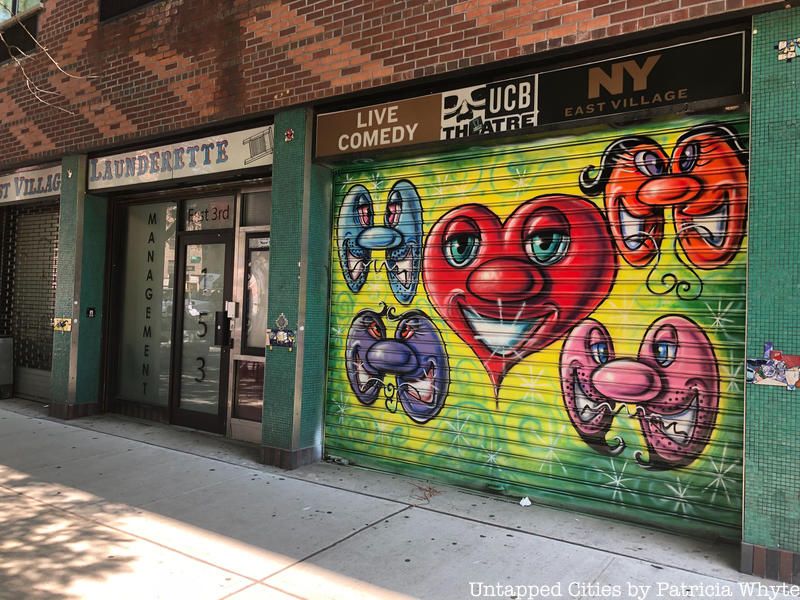
Not a movie theater, but The Upright Citizens Brigade (UCB) East Theater (also known as The Beast) is worth mentioning, because it closed in 2019. UCB founders, the comedy stalwarts Amy Poehler, Matt Besser, Ian Roberts, and Matt Walsh, released a statement saying “Due to the long-term cost of rent, property taxes, and other expenses associated with operating a second venue in New York City, U.C.B. has created this new experience at SubCulture to reduce the financial impact.”
UCB has moved around a bit in the last few years, leaving its original basement Chelsea location beneath a Gristede’s supermarket it had since 2003 for Hell’s Kitchen in 2017. Earlier this year, the New York Times noted that the new location was “struggling” due to increased competition in the area, but a spokesperson provided reassurance that it was not going to be closing anytime soon.Next, check out 12 of NYC’s Lost or Demolished Grand Theaters. For a more inspiring movie theater transformation, read about the renovation of the former Pavilion Theater in Park Slope into Nitehawk Cinema.
Subscribe to our newsletter